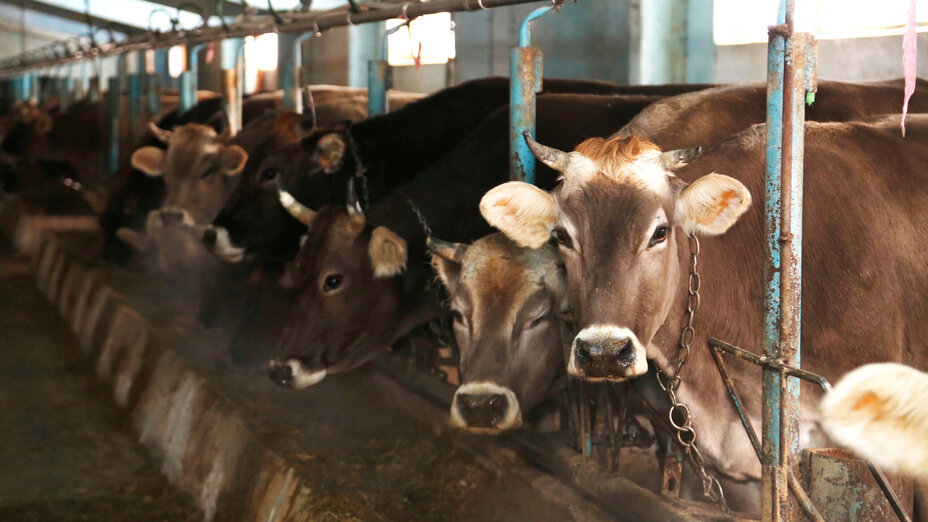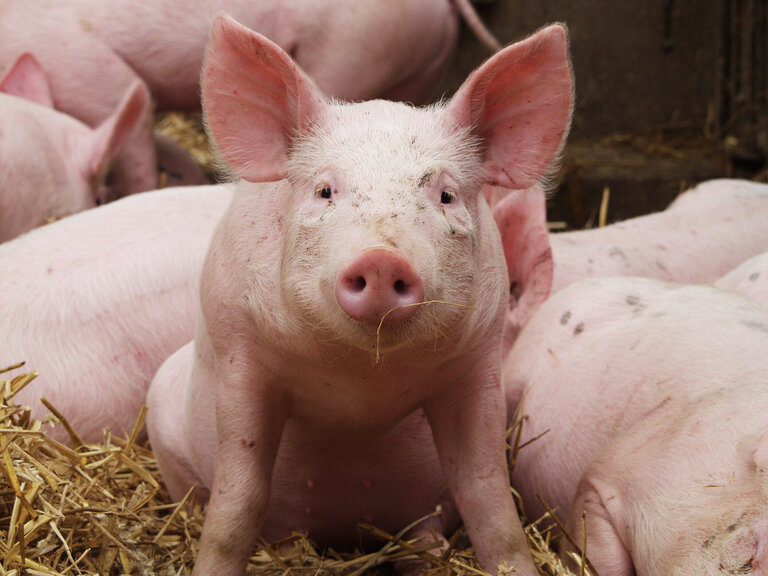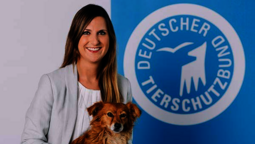The German Animal Welfare Federation is calling for all tethering of cattle to be banned and criticizes the CDU/CSU parliamentary group's motion "Supporting agriculture instead of ruining it", which aims to allow so-called combined husbandry without restrictions in the future. In seasonal tethering, euphemistically referred to as "combined husbandry", the animals are usually allowed to graze on pasture or in a free-range yard for 120 days a year, but are tethered in the barn for most of the year - without being able to walk around. New undercover footage reported today by Bayerischer Rundfunk shows just how torturous this is for cattle.
"Anyone who advocates tethering animals and depriving them of any freedom of movement in the barn is talking the talk of animal suffering. Any form of animal husbandry in which animals are restrained and tethered for long periods of time is not compatible with the national goal of animal welfare and should be banned," says Thomas Schröder, President of the German Animal Welfare Federation. "Instead of obscuring the agony of the animals with the word "combined husbandry", all efforts should be focused on considering animal-friendly solutions such as the construction of loose housing and outdoor runs. Even if the situation is currently challenging, animal welfare must not be abandoned." Schröder thus criticizes the CDU/CSU parliamentary group, which in its motion "Supporting agriculture instead of ruining it" calls for "renouncing ideologically motivated and disproportionate bans on animal husbandry and continuing to allow forms of combined husbandry without restriction in the future". The motion is being discussed today on the occasion of the Federal Government's agricultural policy report.
According to the Federal Government's plans, the tethering of cattle is to be ended "in ten years at the latest" - as stated in the coalition agreement published in 2021. No distinction is made between year-round and seasonal tethering. If seasonal tethering were exempt from a ban, farms would have to allow the animals to graze seasonally - 120 days a year is currently the norm. "Conversely, 120 days on pasture means 245 days tethered in the barn," explains Frigga Wirths, specialist for animals in agriculture at the German Animal Welfare Federation. That's far too little for the animals, who love to move around!" It should also be borne in mind that, in addition to dairy cows, around 500,000 young animals and cattle are also tethered for fattening. The conditions under which these animals live are shown in the recently published undercover footage. The German Animal Welfare Federation is therefore campaigning for a complete ban on tethering - including seasonal tethering - in the legislative process.
In summer 2023, the European Food Safety Authority (EFSA) came to the conclusion in an opinion that it is scientifically proven "that the welfare of cows that are permanently tethered in stalls is impaired". The EFSA therefore recommends ending tethering throughout Europe and only allowing cows to be restrained during a transitional period, provided that the animals can temporarily use a pasture or exercise yard.
Note to editors:
With its current campaign "Now more animal welfare!", the German Animal Welfare Federation provides information on which announcements from the coalition agreement the coalition government has already tackled and where there are only empty promises so far: www.jetzt-mehr-tierschutz.de








